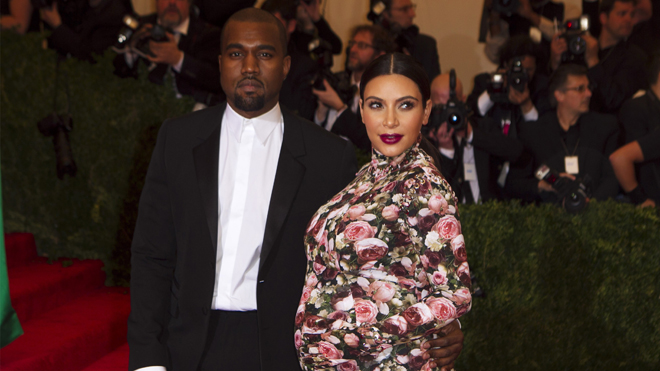
It never ceases to amaze me how many expectant mothers sensationalize their pregnancies for publicity. And we all know the 'mother' of all publicity seekers’ whose name starts with a “Kim” and ends with “Kardashian.”
Perhaps all the bad press she’s been getting about her looks throughout her pregnancy has finally gotten to her. On Sunday's season premiere of “Keeping Up with the Kardashians,” the 32-year-old reality star revealed she might be interested in eating her own placenta after her baby girl is born, in order to help her look younger.
Kim, I want to preface this article by reminding you of an old adage that I think applies here: Don't kill the messenger.
For years, I’ve been hearing that some patients, after giving birth, request to keep their placentas — though I’ve never actually had this experience in my own practice.
Some of these patients desire to keep their placentas for cultural reasons. However, a growing trend is on the rise of new moms that actually want to eat them.
A couple of years ago, a feature in New York Magazine called “The Placenta Cookbook,” took an in-depth look at the placentophagia fad from the professional placenta-preparer, to the women who call on her for services.
Aside from profiling some of the people who take part in this trend, the article included anecdotal recipes and tips to enjoy the afterbirth delicacy — and even shared step-by-step instructions on how to prepare placental capsules in an attempt to preserve the nutritional value thought to be contained in the tissue.
Beyond this particular article, various websites exist where mothers discuss how to drain the blood from the tissue and exchange recipes ranging from roast placenta to placenta lasagne.
The growing popularity of this phenomenon has to do with the belief that consuming the placenta may offer a new mother certain health benefits, although there are no scientific studies to back up these claims. For example, some people believe that the placenta can help with the treatment of postpartum depression, or “baby blues.”
It has been suggested in the past that postpartum depression in some patients is spurred by the quickly shifting levels of female hormones after giving birth, and that by eating the placenta, the hormones will stabilize and postpartum depression can therefore be prevented.
Another thought is that the placenta can offer some degree of pain relief due to certain chemicals contained within the tissue. In ancient Chinese medicine, placental extracts are commonly mixed with herbs taken to relieve pain, stimulate milk production, and even to cure impotence.
As it turns out, humans are actually one of the only mammals that don’t regularly eat their own placentas. Some researchers believe it must be because the placenta offers some fundamental biological advantage. It is known to contain high levels of things like iron, vitamin B-12 and certain hormones.
But before jumping on the placenta bandwagon, I must admit that I myself have failed to find any concrete benefits to eating your own placenta. The medical community rarely comments on this practice, to be honest.
In hospitals, the placenta has always seen as a biohazardous material. Remember that this is human tissue, and in theory, it could carry infectious diseases.
However, these days, many hospitals are actively looking into procedures for handling patients who request to take home their placenta after birth. Do the doctors give it to her? Do they package it neatly and present it along with the newborn baby?
Surprisingly, it appears that as long as certain medical criteria are met — such as both the patient and placenta being healthy — many hospitals will comply with the growing number of requests.
Now, I’m no lawyer, but I don’t think there are any legal implications that would apply to prevent a mother from taking a placenta. Certainly there have been isolated cases where patients have been denied their placentas and challenged the hospitals. In 2007, Anne Swanson took her case to court after a Las Vegas hospital refused to fulfill her request to take home her placenta and won.
Actually, Las Vegas seems to be a hotbed of placental-eating activity – so much so that researchers at the University of Nevada, Las Vegas did a small survey of 200 postpartum mothers who consumed their placentas and found that 95 percent of them reported improvements in their recovery and lactation. The researchers admit that the results may be due to the placebo effect, but plan to study the phenomenon more in-depth in the future. 
So this is my final take: If you want to eat your placenta because you believe in its supposed health benefits, go right ahead. Just be aware that this material has to be handled with care, and you have to protect those around you from being exposed to any tissue waste that you may find unsuitable for consumption.
Finally, please, keep it away from my dinner table.
 
source : http://www.foxnews.com/health/2013/06/04/placenta-its-whats-for-dinner/